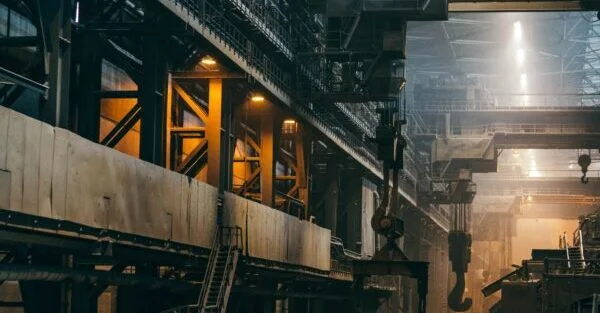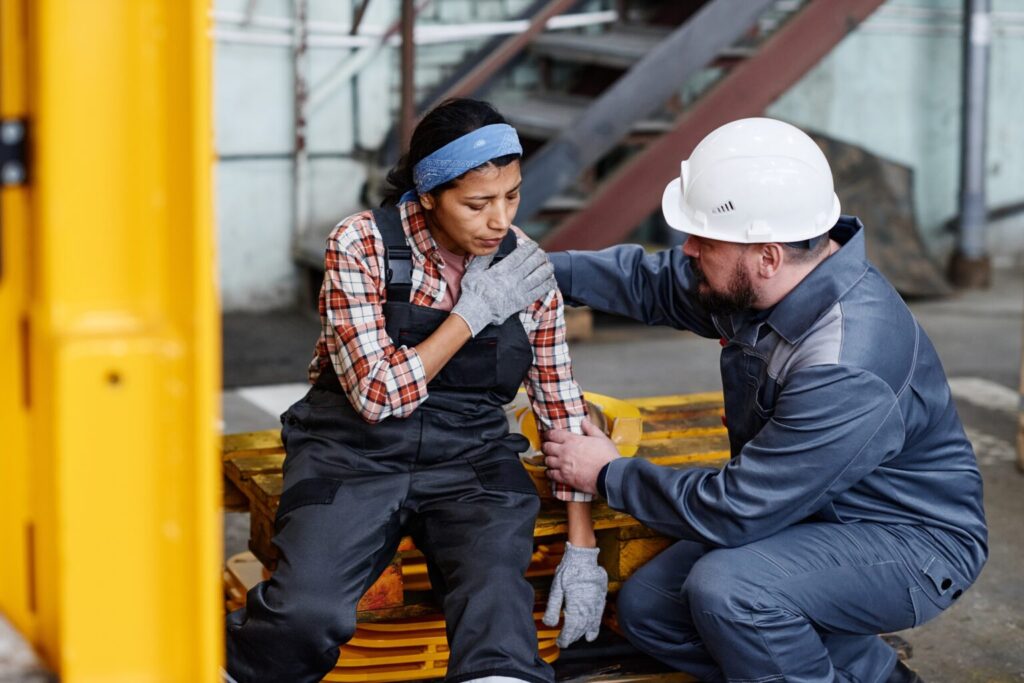¿cómo causan accidentes industriales la maquinaria y los equipos defectuosos?
Los trabajadores de los sectores de la construcción, la agricultura, el petróleo y el gas u otras industrias afines manejan a menudo muchos tipos diferentes de maquinaria y equipos. Los equipos industriales pesados plantean un gran número de riesgos inherentes. Dado el enorme tamaño y complejidad de estas máquinas, los trabajadores deben tener un alto nivel de destreza para manejarlas. Sin embargo, ni siquiera los trabajadores más cualificados pueden evitar un accidente causado por maquinaria y equipos defectuosos. Sin que sea culpa suya, los trabajadores pueden resultar gravemente heridos y, a veces, estos accidentes son incluso mortales. Si usted o un ser querido ha sufrido lesiones debido a maquinaria o equipos industriales defectuosos, es importante que sepa que tiene opciones legales. ¿Qué Tipos de Accidentes Causan las Máquinas y Equipos Defectuosos? Cuando la maquinaria y los equipos pesados presentan defectos, una jornada laboral normal se convierte en una situación de vida o muerte para los operarios y trabajadores que se encuentran cerca. Por desgracia, las consecuencias de estos accidentes suelen ser catastróficas. Los tipos más comunes de accidentes causados por maquinaria y equipos defectuosos incluyen: Caídas a un nivel inferior Trabajadores atrapados o golpeados por equipos o piezas Electrocuciones Exposición a sustancias químicas tóxicas Explosiones e incendios Tipos de Maquinaria y Equipos Defectuosos que Causan Accidentes Por maquinaria y equipos industriales pesados se entienden las máquinas, componentes, herramientas, piezas y otros productos que utilizan los trabajadores en el desempeño de sus funciones. Aunque cualquier tipo de maquinaria pesada puede contener defectos, hay algunas que causan accidentes con más frecuencia que otras. Entre ellas se incluyen: Grúas Topadoras Carretillas elevadoras Retroexcavadoras Cargadoras sobre ruedas Sierras circulares Tornos de arrastre Niveladoras Máquinas de fundición a presión Excavadoras Lesiones Comunes Causadas por Maquinaria y Equipos Defectuosos Una vez más, las lesiones causadas por maquinaria y equipos defectuosos son algunas de las más graves. Entre las más comunes figuran: Lesiones cerebrales traumáticas Electrocuciones Quemaduras Inhalación de humo Fracturas óseas Amputaciones Rotura de ligamentos Lesiones en la espalda, la médula espinal y el cuello, incluida la parálisis Pérdida de audición o visión Laceraciones desfigurantes Los Tipos más Comunes de Defectos en Maquinaria Pesada La maquinaria pesada puede presentar distintos tipos de defectos. Algunos de ellos se producen durante el proceso de fabricación. Por ejemplo, una sierra eléctrica puede no haber sido construida con las protecciones de seguridad necesarias. Incluso la comercialización de un determinado tipo de maquinaria puede ser defectuosa. Esto suele ocurrir cuando el fabricante no advierte a los consumidores, las empresas y los trabajadores de ciertos peligros asociados al uso del equipo. Los anteriores son sólo dos tipos de defectos que pueden encontrarse en la maquinaria pesada. Otros defectos comunes son: Los equipos pesados no se colocan en el lugar adecuado, lo que expone a los trabajadores al riesgo de sufrir lesiones con los equipos cercanos. Errores cometidos durante la instalación o el montaje de determinadas máquinas Materiales inadecuados o de mala calidad utilizados durante la fase de fabricación Cableado defectuoso ¿Quién es Responsable de las Máquinas y Equipos Defectuosos? Las empresas que fabrican, diseñan, venden o distribuyen maquinaria y equipos defectuosos pueden ser consideradas responsables de las lesiones causadas. Estos casos se conocen legalmente como demandas de responsabilidad objetiva. Esto significa que usted no tiene que demostrar que la parte responsable fue negligente. Sólo tiene que demostrar que la maquinaria o el equipo es defectuoso y que usted resultó herido como consecuencia de ello. Aun así, demostrar la responsabilidad en las demandas por productos defectuosos puede resultar complejo. Siempre es aconsejable que trabaje con un abogado especializado en accidentes industriales en Baton Rouge que pueda ayudarle a obtener la indemnización completa que se merece. Si su reclamación prospera, puede obtener una indemnización por cualquier pérdida que haya sufrido. Esta indemnización se conoce legalmente como daños y perjuicios, y los tipos más comunes disponibles son los siguientes: Gastos médicos Pérdida de ingresos Pérdida de capacidad de ganancia si no puede volver a la misma línea de trabajo o ganar el mismo salario después del accidente Dolor físico Angustia emocional Desfiguración permanente No siempre es fácil saber el importe total de los daños y perjuicios que le corresponden tras un accidente industrial. Por ejemplo, es posible que por su cuenta sólo calcule las pérdidas que ha sufrido actualmente sin tener en cuenta los daños futuros. Un abogado también sabrá cómo valorar con precisión su reclamación para que usted maximice su indemnización. Nuestros Abogados de Lesiones Personales en Baton Rouge Pueden Ayudar en Su Caso Si usted o un ser querido ha sido lesionado por maquinaria o equipos defectuosos, nuestros abogados de lesiones personales en Baton Rouge pueden ayudar. En Big River Trial Attorneys, hemos ayudado a muchas víctimas a reclamar los daños completos y justos que merecen, y pondremos esa experiencia a trabajar para usted. Llame o póngase en contacto con nosotros en línea ahora haciendo clic aquí para programar una consulta y obtener más información sobre cómo podemos ayudarle.





